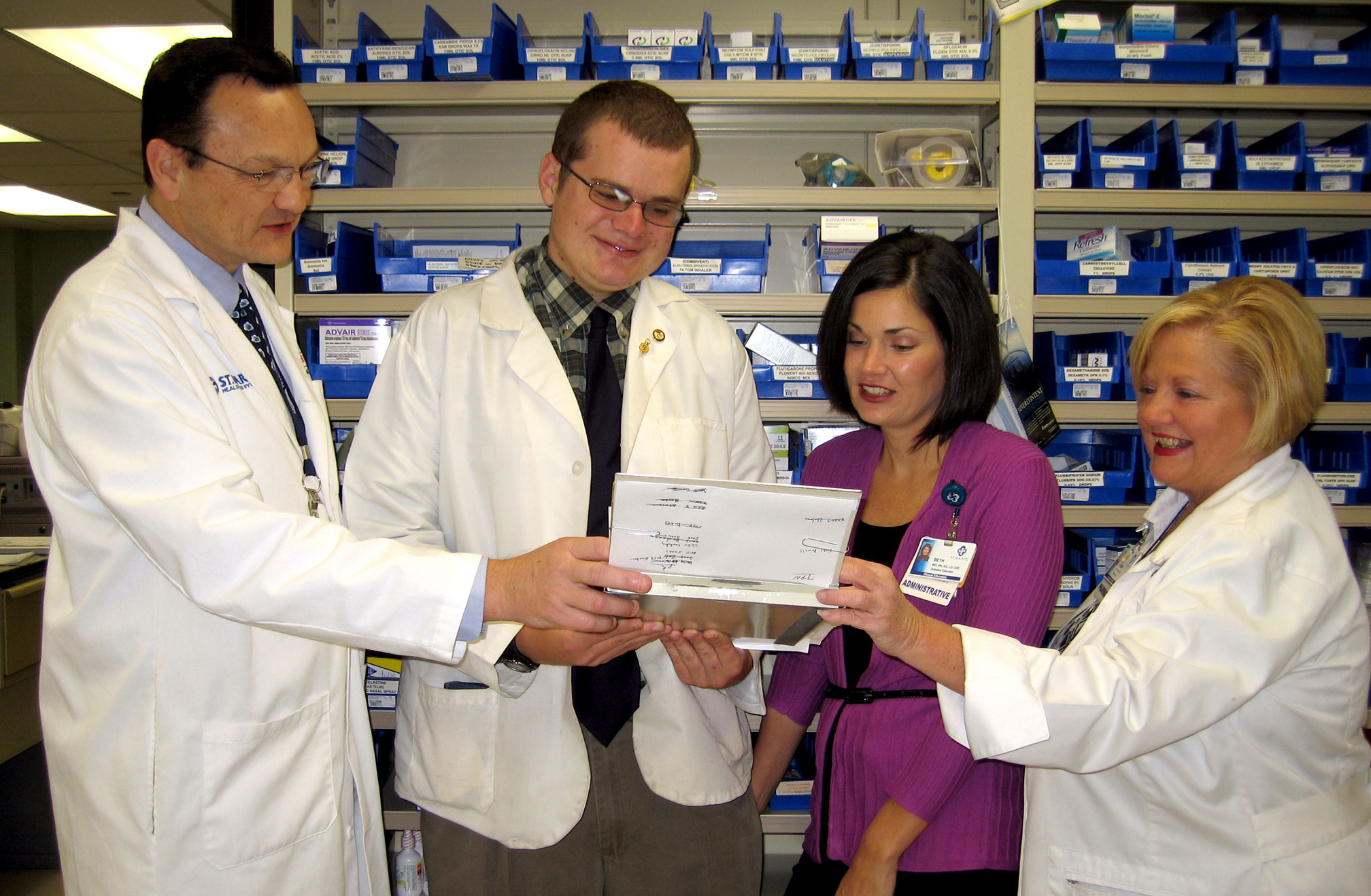Students in the College of Pharmacy were part of a team of health care workers that helped make a unique diabetes specialty certification a reality for St. Mary’s Health Care System of Athens.
In September, St. Mary’s earned the Joint Commission’s Gold Seal of Approval for advanced inpatient diabetes care, making it one of two hospitals in the state and one of 38 hospitals in the country to earn a specialty certification for diabetes care. St. Mary’s began working toward the voluntary diabetes certification about four years ago.
“Through aggressive identification, intervention and education, all members of our health care team—including pharmacy students—are helping our patients control their diabetes and prevent complications,” said Beth Melvin, a St. Mary’s diabetes education coordinator and head of the leadership team.
Using guidelines recommended by the Joint Commission, UGA pharmacy students worked to assure compliance with standards of care specific to the needs of diabetes patients and families. They reviewed patient data, assessed treatment plans that included medication and dosing, participated in patient education and presented recommendations to physicians.
As a result of the collaborative environment, the College of Pharmacy was able to develop a five-week advanced pharmacy practice experience program in diabetes for its fourth-year pharmacy students, said Robin Southwood, an associate professor of clinical and administrative pharmacy at UGA. He is part of the St. Mary’s team of administrators and health care providers who led the inpatient diabetes care effort.
“Having pharmacy students develop an interest in diabetes care and education is very important for the future health of our population,” said Robbin St. John, a UGA alumna and St. Mary’s pharmacy educator. “Often when [patients] come into the hospital, diabetes is not their primary condition, so these pharmacy students benefit from the interactions required among specialists in other disease states for treating diabetes and other health care problems.”


